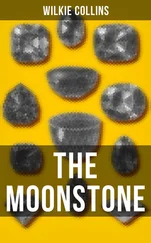Wilkie Collins - The Queen of Hearts
Здесь есть возможность читать онлайн «Wilkie Collins - The Queen of Hearts» весь текст электронной книги совершенно бесплатно (целиком полную версию без сокращений). В некоторых случаях можно слушать аудио, скачать через торрент в формате fb2 и присутствует краткое содержание. Год выпуска: 1999, Жанр: Классическая проза, на английском языке. Описание произведения, (предисловие) а так же отзывы посетителей доступны на портале библиотеки ЛибКат.
- Название:The Queen of Hearts
- Автор:
- Жанр:
- Год:1999
- ISBN:нет данных
- Рейтинг книги:5 / 5. Голосов: 1
-
Избранное:Добавить в избранное
- Отзывы:
-
Ваша оценка:
- 100
- 1
- 2
- 3
- 4
- 5
The Queen of Hearts: краткое содержание, описание и аннотация
Предлагаем к чтению аннотацию, описание, краткое содержание или предисловие (зависит от того, что написал сам автор книги «The Queen of Hearts»). Если вы не нашли необходимую информацию о книге — напишите в комментариях, мы постараемся отыскать её.
The Queen of Hearts — читать онлайн бесплатно полную книгу (весь текст) целиком
Ниже представлен текст книги, разбитый по страницам. Система сохранения места последней прочитанной страницы, позволяет с удобством читать онлайн бесплатно книгу «The Queen of Hearts», без необходимости каждый раз заново искать на чём Вы остановились. Поставьте закладку, и сможете в любой момент перейти на страницу, на которой закончили чтение.
Интервал:
Закладка:
Before we assembled at the dinner-table, Owen whispered to me that he had made my excuses to our guest, and that I need dread nothing more than a few friendly inquiries about my health when I saw her again. The meal was dispatched hastily and quietly. Toward dusk the storm began to lessen, and for a moment the idea of sending to the town occurred to me once more. But, now that the obstacle of weather had been removed, the obstacle of darkness was set up in its place. I felt this; I felt that a few more hours would decide the doubt about George, so far as this last day was concerned, and I determined to wait a little longer, having already waited so long. My resolution was the more speedily taken in this matter, as I had now made up my mind, in sheer despair, to tell my son’s secret to Jessie if he failed to return before she left us. My reason warned me that I should put myself and my guest in a false position by taking this step, but something stronger than my reason forbade me to let her go back to the gay world and its temptations without first speaking to her of George in the lamentable event of George not being present to speak for himself.
We were a sad and silent little company when the clock struck eight that night, and when we met for the last time to hear the last story. The shadow of the approaching farewell—itself the shade of the long farewell—rested heavily on our guest’s spirits. The gay dresses which she had hitherto put on to honor our little ceremony were all packed up, and the plain gown she wore kept the journey of the morrow cruelly before her eyes and ours. A quiet melancholy shed its tenderness over her bright young face as she drew the last number, for form’s sake, out of the bowl, and handed it to Owen with a faint smile. Even our positions at the table were altered now. Under the pretense that the light hurt my eyes, I moved back into a dim corner, to keep my anxious face out of view. Morgan, looking at me hard, and muttering under his breath, “Thank Heaven, I never married!” stole his chair by degrees, with rough, silent kindness, nearer and nearer to mine. Jessie, after a moment’s hesitation, vacated her place next, and, saying that she wanted to sit close to one of us on the farewell night, took a chair at Owen’s side. Sad! sad! we had instinctively broken up already, so far as our places at the table were concerned, before the reading of the last story had so much as begun.
It was a relief when Owen’ s quiet voice stole over the weary silence, and pleaded for our attention to the occupation of the night.
“Number Six,” he said, “is the number that chance has left to remain till the last. The manuscript to which it refers is not, as you may see, in my handwriting. It consists entirely of passages from the Diary of a poor hard-working girl—passages which tell an artless story of love and friendship in humble life. When that story has come to an end, I may inform you how I became possessed of it. If I did so now, I should only forestall one important part of the interest of the narrative. I have made no attempt to find a striking title for it. It is called, simply and plainly, after the name of the writer of the Diary—the Story of Anne Rodway.”
In the short pause that Owen made before he began to read, I listened anxiously for the sound of a traveler’s approach outside. At short intervals, all through the story, I listened and listened again. Still, nothing caught my ear but the trickle of the rain and the rush of the sweeping wind through the valley, sinking gradually lower and lower as the night advanced.
BROTHER OWEN’S STORY
of ANNE RODWAY.
[TAKEN FROM HER DIARY.]
...MARCH 3d, 1840. A long letter today from Robert, which surprised and vexed me so that I have been sadly behindhand with my work ever since. He writes in worse spirits than last time, and absolutely declares that he is poorer even than when he went to America, and that he has made up his mind to come home to London.
How happy I should be at this news, if he only returned to me a prosperous man! As it is, though I love him dearly, I cannot look forward to the meeting him again, disappointed and broken down, and poorer than ever, without a feeling almost of dread for both of us. I was twenty-six last birthday and he was thirty-three, and there seems less chance now than ever of our being married. It is all I can do to keep myself by my needle; and his prospects, since he failed in the small stationery business three years ago, are worse, if possible, than mine.
Not that I mind so much for myself; women, in all ways of life, and especially in my dressmaking way, learn, I think, to be more patient than men. What I dread is Robert’s despondency, and the hard struggle he will have in this cruel city to get his bread, let alone making money enough to marry me. So little as poor people want to set up in housekeeping and be happy together, it seems hard that they can’t get it when they are honest and hearty, and willing to work. The clergyman said in his sermon last Sunday evening that all things were ordered for the best, and we are all put into the stations in life that are properest for us. I suppose he was right, being a very clever gentleman who fills the church to crowding; but I think I should have understood him better if I had not been very hungry at the time, in consequence of my own station in life being nothing but plain needlewoman.
March 4th. Mary Mallinson came down to my room to take a cup of tea with me. I read her bits of Robert’s letter, to show her that, if she has her troubles, I have mine too; but I could not succeed in cheering her. She says she is born to misfortune, and that, as long back as she can remember, she has never had the least morsel of luck to be thankful for. I told her to go and look in my glass, and to say if she had nothing to be thankful for then; for Mary is a very pretty girl, and would look still prettier if she could be more cheerful and dress neater. However, my compliment did no good. She rattled her spoon impatiently in her tea-cup, and said, “If I was only as good a hand at needle-work as you are, Anne, I would change faces with the ugliest girl in London.” “Not you!” says I, laughing. She looked at me for a moment, and shook her head, and was out of the room before I could get up and stop her. She always runs off in that way when she is going to cry, having a kind of pride about letting other people see her in tears.
March 5th. A fright about Mary. I had not seen her all day, as she does not work at the same place where I do; and in the evening she never came down to have tea with me, or sent me word to go to her; so, just before I went to bed, I ran upstairs to say good-night.
She did not answer when I knocked; and when I stepped softly in the room I saw her in bed, asleep, with her work not half done, lying about the room in the untidiest way. There was nothing remarkable in that, and I was just going away on tiptoe, when a tiny bottle and wine-glass on the chair by her bedside caught my eye. I thought she was ill and had been taking physic, and looked at the bottle. It was marked in large letters, “Laudanum—Poison.”
My heart gave a jump as if it was going to fly out of me. I laid hold of her with both hands, and shook her with all my might. She was sleeping heavily, and woke slowly, as it seemed to me—but still she did wake. I tried to pull her out of bed, having heard that people ought to be always walked up and down when they have taken laudanum but she resisted, and pushed me away violently.
“Anne!” says she, in a fright. “For gracious sake, what’s come to you! Are you out of your senses?”
“Oh, Mary! Mary!” says I, holding up the bottle before her, “if I hadn’t come in when I did—” And I laid hold of her to shake her again.
Читать дальшеИнтервал:
Закладка:
Похожие книги на «The Queen of Hearts»
Представляем Вашему вниманию похожие книги на «The Queen of Hearts» списком для выбора. Мы отобрали схожую по названию и смыслу литературу в надежде предоставить читателям больше вариантов отыскать новые, интересные, ещё непрочитанные произведения.
Обсуждение, отзывы о книге «The Queen of Hearts» и просто собственные мнения читателей. Оставьте ваши комментарии, напишите, что Вы думаете о произведении, его смысле или главных героях. Укажите что конкретно понравилось, а что нет, и почему Вы так считаете.











